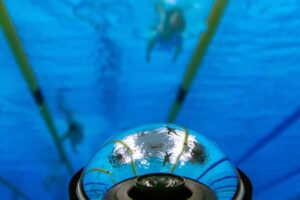
It has been a week since the New York Times and the German TV channel ARD broke the news that 23 Chinese swimmers had tested positive for trace amounts of the banned performance-enhancing drug trimetazidine (TMZ) in the run-up to the last Olympic Games, and public ripples we have seen since are only the visible tip of a wave of feeling running through the sport.
The larger part is below the surface, where there is widespread anger, exasperation and disillusionment at the way the 23 were allowed to compete at the Games anyway after an investigation by their national doping agency, Chinada, found the results were caused by kitchen contamination.
Three of them went on to win gold medals. One, Wang Shun, finished just 0.28sec ahead of Duncan Scott in the 200m individual medley. Both men are among the favourites again this year. “Give Slam his gold medal now,” Scott’s friend and team-mate James Guy posted on X when the story broke (Slam is Scott’s nickname).
Scott was one of a group of swimmers who has taken a public stand over doping before, when he refused to shake hands with another Chinese swimmer, Sun Yang, at the world championships in 2019, because Yang had his own doping case hanging over him. There is talk that there will be more podium protests in Paris.
It could get more heated. Sun, who had previously been banned for three months after testing positive for TMZ himself, has only just finished a separate four-year suspension. He has said he wants to compete at the Olympics. He missed the Chinese trials, which took place this week, but so long as he makes the qualifying time (and he says he has been training every day) he would be eligible for discretionary selection by the Chinese federation.
Guy is one of the few athletes willing to state in public what a lot of people in swimming will only say in private. Sound carries over water and you don’t need to strain your ears to pick up the whispers on the pool deck. Athletes who have been told their entire lives that they are strictly responsible for everything in their bodies have all of a sudden learned that they have been up against swimmers who were allowed to compete, despite testing positive for trace levels of TMZ. Both Chinada and the World Anti-Doping Agency were satisfied that they fell below the level at which they could be considered performance enhancing – the Chinese authorities said it meant intentional doping was “impossible”. Questions remain, though, about how exactly the contamination occurred.
Guy’s teammate Adam Peaty joined in, although his own comments on X were aimed at Wada’s handling of the case. Peaty publicly backed Scott’s protest in 2019. If he is going to win gold in Paris he will need to beat one of the 23, Qin Haiyang, who swept the three breaststroke events at the world championships in Fukuoka last year.
